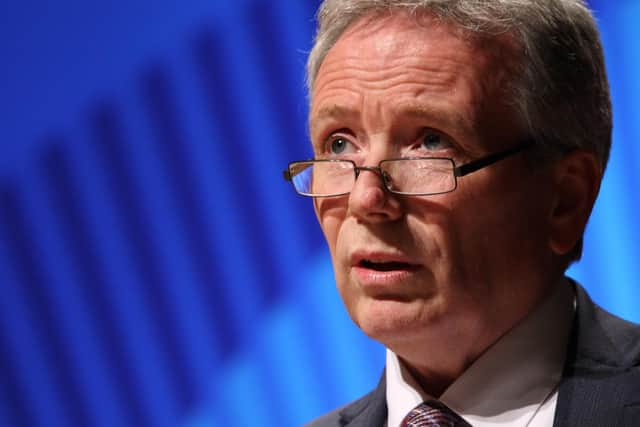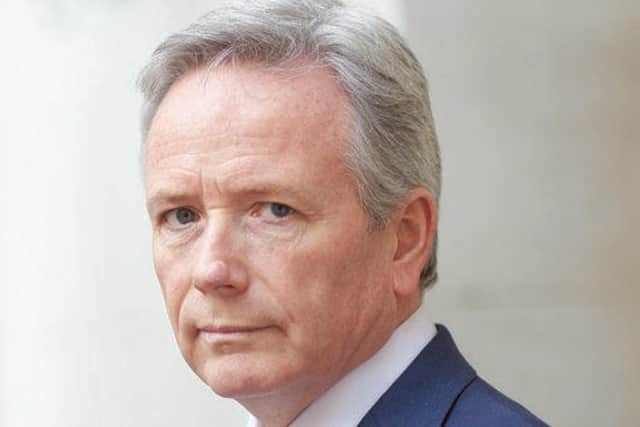GPs could cut hours and consultants halt extra work to tackle waiting lists over ‘too low’ pay, says doctors’ union


That is the view of Dr Tom Black, who chairs the BMA’s Northern Ireland committee, following a pay recommendation that as things stand can’t yet be formally offered to staff in the health service due to the absence of a fully functioning Executive at Stormont.
The Royal College of Nursing, meanwhile, has already announced plans to ballot its members on whether they are prepared to go on strike for the second time in just three years following the pay recommendation put forward earlier this year.
Advertisement
Hide AdAdvertisement
Hide AdAnd in a statement earlier this week, following a survey of more than 1,000 members of the BMA, Dr Black said the organisation’s various committees would consider what “action” might be possible.


Northern Ireland, like the rest of the UK, has seen industrial relations deteriorate amid soaring prices for essentials like food, heating and transport.
Trade unions have stepped up demands for pay increases to match skyrocketing inflation and there have been ballots and strikes in both the public and private sector.
Speaking to the News Letter, Dr Black said it was unlikely GPs and other doctors would take strike action but he did set out a series of options available as his membership body prepares to oppose the proposed pay deal that has yet to be even put on the table officially in Northern Ireland.
Advertisement
Hide AdAdvertisement
Hide Ad“Obviously we have different branches of practice,” he said.


“Medical students won’t be going on strike.
“GPs are self-employed, independent contractors so it’s quite difficult to go on strike as such, but there are other options.
“What we’re really talking about here is terms and conditions. If the government isn’t funding the health service, then what do you need to do to make ends meet in practice?
“Do you cancel locums, which cuts down on your provision of care?
Advertisement
Hide AdAdvertisement
Hide Ad“Do you prioritise the different types of work that you do? Maybe the GPs will stop doing the out-of-hours service because they don’t have time. Usually what happens is the GP cuts their hours in the practice because it’s so difficult to do a lot of days in a row.”
He continued: “For consultants, the big thing with consultants is obviously the waiting lists.
“Can we persuade the consultants to work nights and weekends for the waiting list initiatives, in other words to do overtime?
“The problem they have there is the pension and taxation issue. They are looking at that and saying that unless that is fixed, it will cost money to work.
Advertisement
Hide AdAdvertisement
Hide Ad“So, within the consultant grade they would see the waiting list initiative as something that is unattractive. That’s not industrial action, as such, but you could portray that more as working to your contract.”
Dr Black’s organisation also represents junior doctors, a group he said are more sensitive to the pay on offer since they are not yet as well paid as senior doctors. While there are believed to be discussions ongoing across the UK about the possiblity of industrial action by junior doctors, Dr Black gave no indication about that possibility in his interview with the News Letter.
“In some ways the junior doctors have a much more immediate problem in that their pay rates are much lower,” he said.
“Their difficulty in terms of training in a really difficult time in the health service preys on their minds at the moment. They want to be trained up to become senior doctors and it’s difficult when the work is overwhelming.
Advertisement
Hide AdAdvertisement
Hide Ad“How do you deal with 312 patients in emergency departments waiting on admission in Northern Ireland – that was the case on Wednesday. That’s nearly a big hospital in terms of bed provision.
“Their response to a lot of this is emigration. The word amongst the juniors at the moment is that medicine is a great career if you leave the country.
“What we’re seeing is some hospitals in Australia and New Zealand with more than 50% UK graduates as their senior doctors – that’s just astonishing.”
Returning to the “action” that doctors could take, the BMA Northern Ireland chair added: “Each committee will look to their own weaknesses and strengths and try to tailor any action to improve their terms and conditions.”